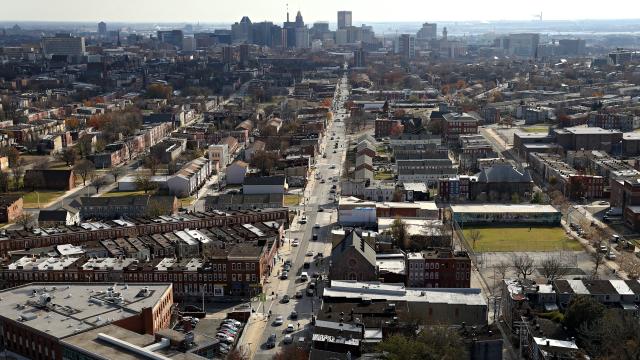Last month, we found out that hackers took down a county government in California. Around the same time, a city in Maine lost control of all its data. These followed New York state’s capital, Albany, admitting that hackers had crippled the city’s technology operations, which means just about everything important in the city was taken down.
And just last week, Baltimore was hit by a successful ransomware attack that demanded 13 bitcoin to decrypt city files that were being held hostage.
The world is supposed to be launching into a dazzling smart city future where governments are always connected and, therefore, move quicker and more efficiently than before. But if that’s where we’re going, we have to deal with the fact that many cities fall victim to profit-driven hackers.
The weapon often used against cities is ransomware, a type of malware designed to gain access, take control of important data and then demand money to end the ensuing crisis. It’s a popular extortion-hacking scheme that’s now seeing a new source of success.
American governments, particularly cities, states, law enforcement agencies, and schools, are being increasingly targeted by ransomware, according to a new report from the cybersecurity firm Recorded Future. At least 170 government systems have been attacked since 2013, according to public reports. And there have been 21 attacks so far this year, Recorded Future found, and 2019 is on pace to tally the highest ever number of ransomware attacks against cities. But due to the lack of transparency and accountability, there are likely more attacks unknown to both the public and many defenders.
Is this due to an overall rise in ransomware attacks, or is it a result of more cities bringing their systems online? No one knows the full answer because, thanks to a lack of transparency and information sharing rules, no one knows fully what’s happening.
In a time when American cities are struggling to deal with crumbling infrastructure—bad roads, collapsing bridges, old hospitals—it’s becoming increasingly clear that vulnerable networks ought to be added to the list of decaying necessities in dire need of an upgrade. With the emergence of the so-called smart city, in which everything is connecting to the internet—including those very same roads, bridges, and hospitals — the challenges facing cities loom even larger.
“We see with cities coming online in every respect so that when ransomware takes them offline, how much it affects constituents,” Recorded Future’s Allan Liska told Gizmodo. “Atlanta had everything in the ‘smart city,’ so even court systems were taken offline, no one could pay anything through the city because the systems were taken offline.”
Cities around the country are racing to become “smart.” Tech and federal money along with an undeniable popular sentiment to modernise government is driving the push to connect. But it’s one thing to let an algorithm direct road crews or build a facial recognition system to identify drivers—it’s an entirely different issue to have cities prepared to deal with the inevitable security problems that will pop up. That’s to say nothing of the looming privacy concerns of smart cities.
The 2018 Atlanta ransomware attack stands as one of the most high-profile demonstrations of the stakes here. It cost millions to recover from an attack that initially demanded about $71,895 in ransom. When Albany was hit, the city’s police were crippled for a full day. An attack against San Francisco, a city at the heart of the American technology industry, ended up losing millions of dollars on lost revenue when the Municipal Transportation Agency couldn’t accept money from riders.
Baltimore’s computers systems, phone, and email remain offline a week after the ransomware was discovered.
Alone, cities are often unable to deal with the enormity of the task. In the U.S., big infrastructure questions have historically been answered by the federal government, and Liska argues that’s the level of assistance needed here.
“This is a national security problem,” Liska said. “We made clear this isn’t a nation-state actors but if your city is shut down it doesn’t matter if its a nation-state or cybercriminal, the effect is the same.”
Liska says he hopes to see the Department of Homeland Security, the agency tasked with defending critical infrastructure, pouring more money into the mission of defending cities.
“As the cities become smarter, more and more people expect this and it becomes an extension of what we consider infrastructure,” Liska said. “These online methods will become the only way to accomplish certain tasks, which means these attacks will have more impact. From what we’re seeing, the attacks are only going to increase.”
